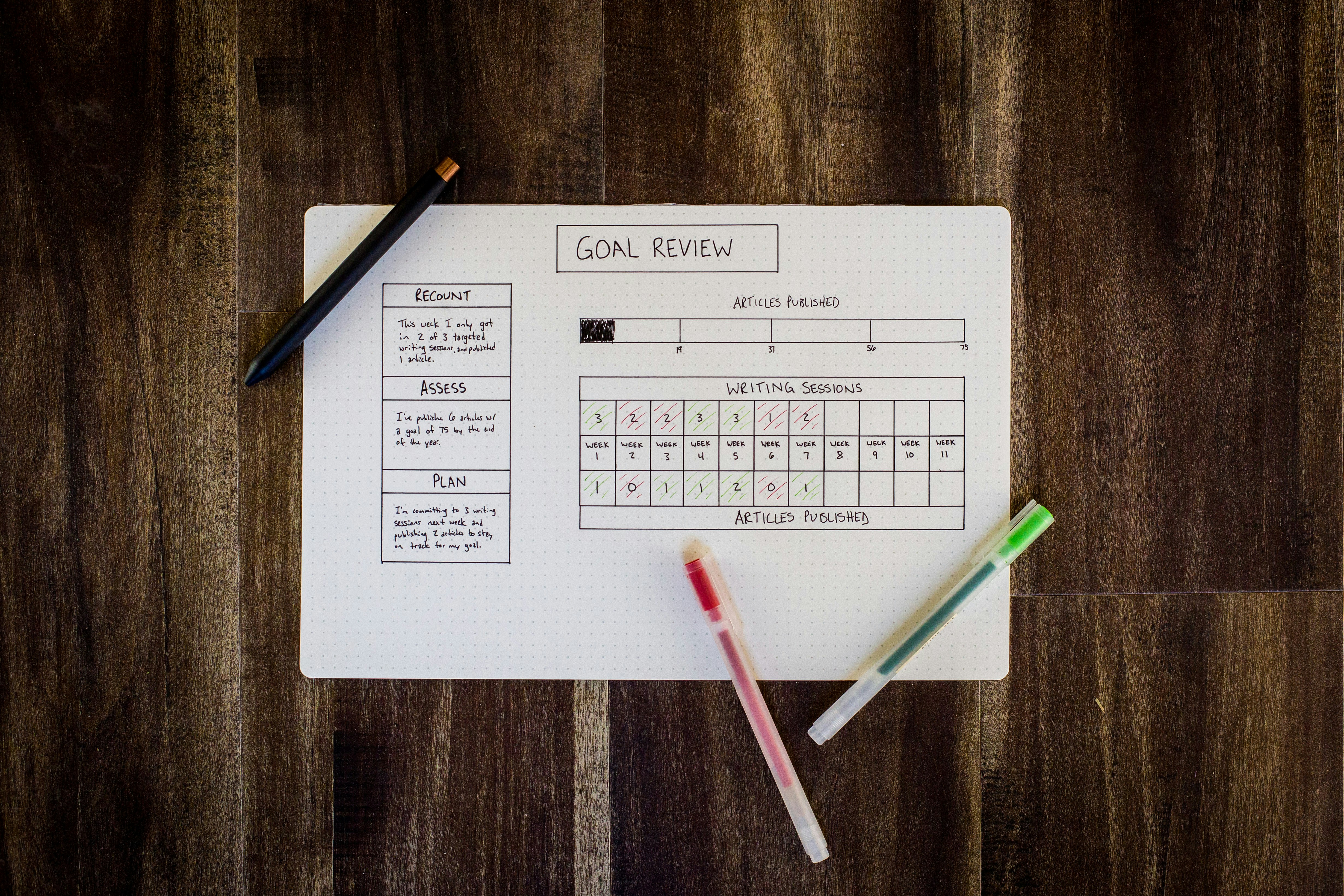Click on the button below to download the Team goal setting module package, which contains detailed information including instructions on how to run the workshop session, facilitator notes, and handouts.

Team Goal Setting
The aim of this session is for the team to collectively establish the team's goals and priorities for the coming months. It is a one-hour structured session whereby people work in pairs and groups to develop ideas and consensus around targets for improvement. These goals should align with the outputs from the previous session on creating the team's Vision and Mission statements.
Download this module
Please click the links below to download a modified version of this module which teams can use to conduct sessions via video conferencing rather than in-person.
Team Goal Setting remote session outline
Team Goal Setting remote handouts and outcomes template
When running this remote module, participants may need to be separated into sub-groups for discussions. Please view this briefvideo conferencing notefor guidance on how to do this.
Note that your organisation may have policies on which video conferencing tools are permitted to be used.
The session is aimed at developing a shared set of goals for the team to work towards collectively. By engaging and involving as many team members as possible, it is anticipated that the session will enhance collaboration, coordination, effective team working and motivation towards shared goals.
This session will deliver the following key team outputs:
- A set of agreed, measurable goals for the team to work towards
- Established sub-groups to collaborate towards these goals
- An initial action plan for the sub-groups
1-2 team members can facilitate discussions and ensure everyone has the opportunity to contribute. One facilitator can act as whiteboard/flip chart scribe to collect ideas and identify common themes from discussions.
The session is structured as follows:
- Welcome to all and Goal Setting Icebreaker (10 minutes)
- Team gather ideas on goals for the team to work towards (20 minutes)
- Group agreement and prioritsation of goals; assignment of sub-groups to goals (25 minutes)
- Confirmation of goals and agreement on monitoring (5 minutes)
Clarity of team goals is the single most important predictor of success in healthcare teams.1-4Large scale reviews of the literature have found that goal-setting has a large positive effect on improving team outcomes.5,6Team goal setting results in markedly higher performance than no goal setting.7
Dawson et al.8found that where staff reported this type of goal setting in place, patients reported better care. Furthermore, patient satisfaction was found to be higher in healthcare organisations where staff indicated there were clear goals at every level, and they described experiencing good communication and high levels of involvement in their care decisions.
More information about developing team values, vision, and mission can be found in the(opens in a new window)Community Toolbox.
References
- Lyubovnikova, J. & West, M.A. (2013). Why teamwork matters: Enabling health care team effectiveness for the delivery of high-quality patient care. In E. Salas et al. (eds.). Developing and enhancing teamwork inorganizations: Evidence-based practice and guidelines. (pp.331-372). San Francisco: Jossey Bass.
- West, M. A., & Markiewicz, L. (2016). Effective team working in health care. In E. Ferlie, K. Montogomery, & A. R. Pedersen (Eds.), The Oxford Handbook of Health Care Management (pp. 231-252). Oxford: Oxford University Press.
- West M, Anderson N. Innovation in top management teams. Journal of Applied Psychology. 1996 Dec;81(6):680-693.
- Dixon-Woods M, Baker R, Charles K, Dawson J, Jerzembek G, Martin G et al. Culture and behaviour in the English National Health Service: overview of lessons from a large multimethod study. BMJ Quality and Safety. 2014 Feb;23(2):106-115.
- Klein, C., DiazGranados, D., Salas, E., Le, H., Burke, C. S., Lyons, R., & Goodwin, G. F. (2009). Does team building work?Small Group Research, 40(2), 181-222.
- Dechurch, L. A., & Mesmer-Magnus, J. R. (2010). Measuring shared team mental models: A meta-analysis.Group Dynamics,14(1), 1-14.
- Locke EA, Latham, GP. New Developments in Goal Setting and Task Performance. New York: Routledge. 2013
- Dawson JF, West MA, Admasachew L, Topakas A (2011). NHS Staff Management and Health Service Quality: Results from the NHS Staff Survey and related data. Report to the Department of Health.